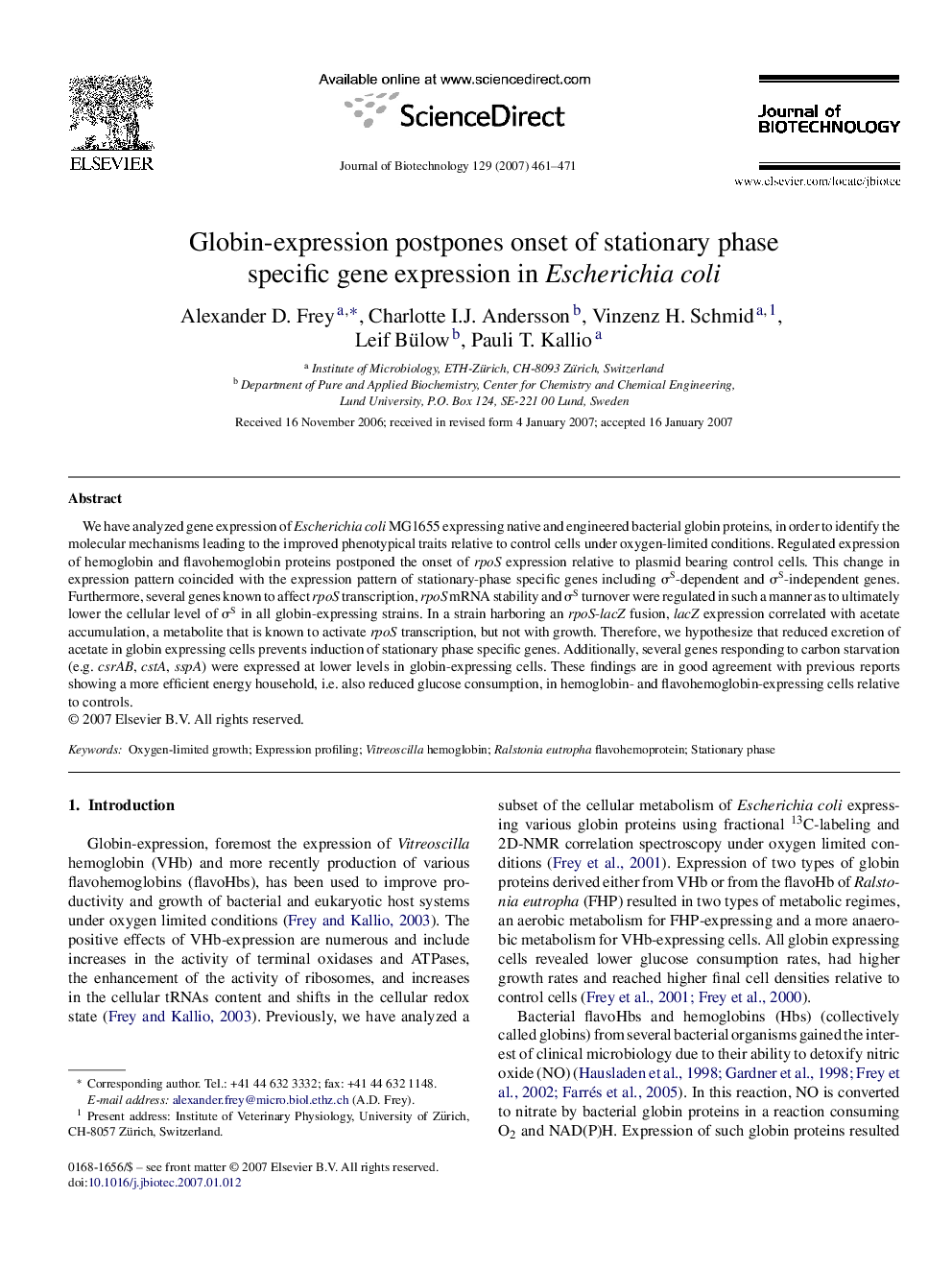| Article ID | Journal | Published Year | Pages | File Type |
|---|---|---|---|---|
| 6492303 | Journal of Biotechnology | 2007 | 11 Pages |
Abstract
We have analyzed gene expression of Escherichia coli MG1655 expressing native and engineered bacterial globin proteins, in order to identify the molecular mechanisms leading to the improved phenotypical traits relative to control cells under oxygen-limited conditions. Regulated expression of hemoglobin and flavohemoglobin proteins postponed the onset of rpoS expression relative to plasmid bearing control cells. This change in expression pattern coincided with the expression pattern of stationary-phase specific genes including ÏS-dependent and ÏS-independent genes. Furthermore, several genes known to affect rpoS transcription, rpoS mRNA stability and ÏS turnover were regulated in such a manner as to ultimately lower the cellular level of ÏS in all globin-expressing strains. In a strain harboring an rpoS-lacZ fusion, lacZ expression correlated with acetate accumulation, a metabolite that is known to activate rpoS transcription, but not with growth. Therefore, we hypothesize that reduced excretion of acetate in globin expressing cells prevents induction of stationary phase specific genes. Additionally, several genes responding to carbon starvation (e.g. csrAB, cstA, sspA) were expressed at lower levels in globin-expressing cells. These findings are in good agreement with previous reports showing a more efficient energy household, i.e. also reduced glucose consumption, in hemoglobin- and flavohemoglobin-expressing cells relative to controls.
Related Topics
Physical Sciences and Engineering
Chemical Engineering
Bioengineering
Authors
Alexander D. Frey, Charlotte I.J. Andersson, Vinzenz H. Schmid, Leif Bülow, Pauli T. Kallio,
